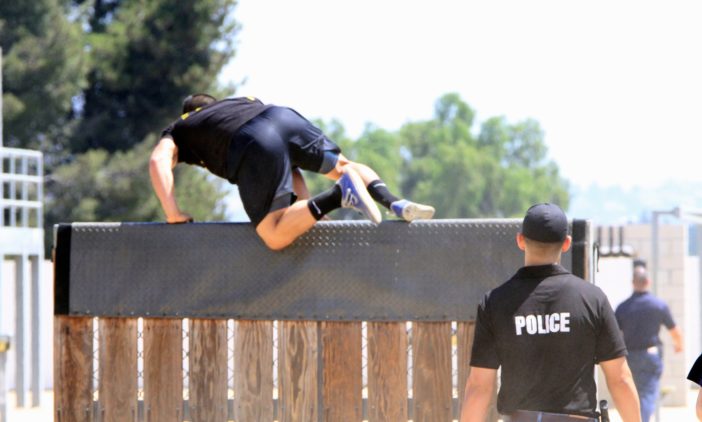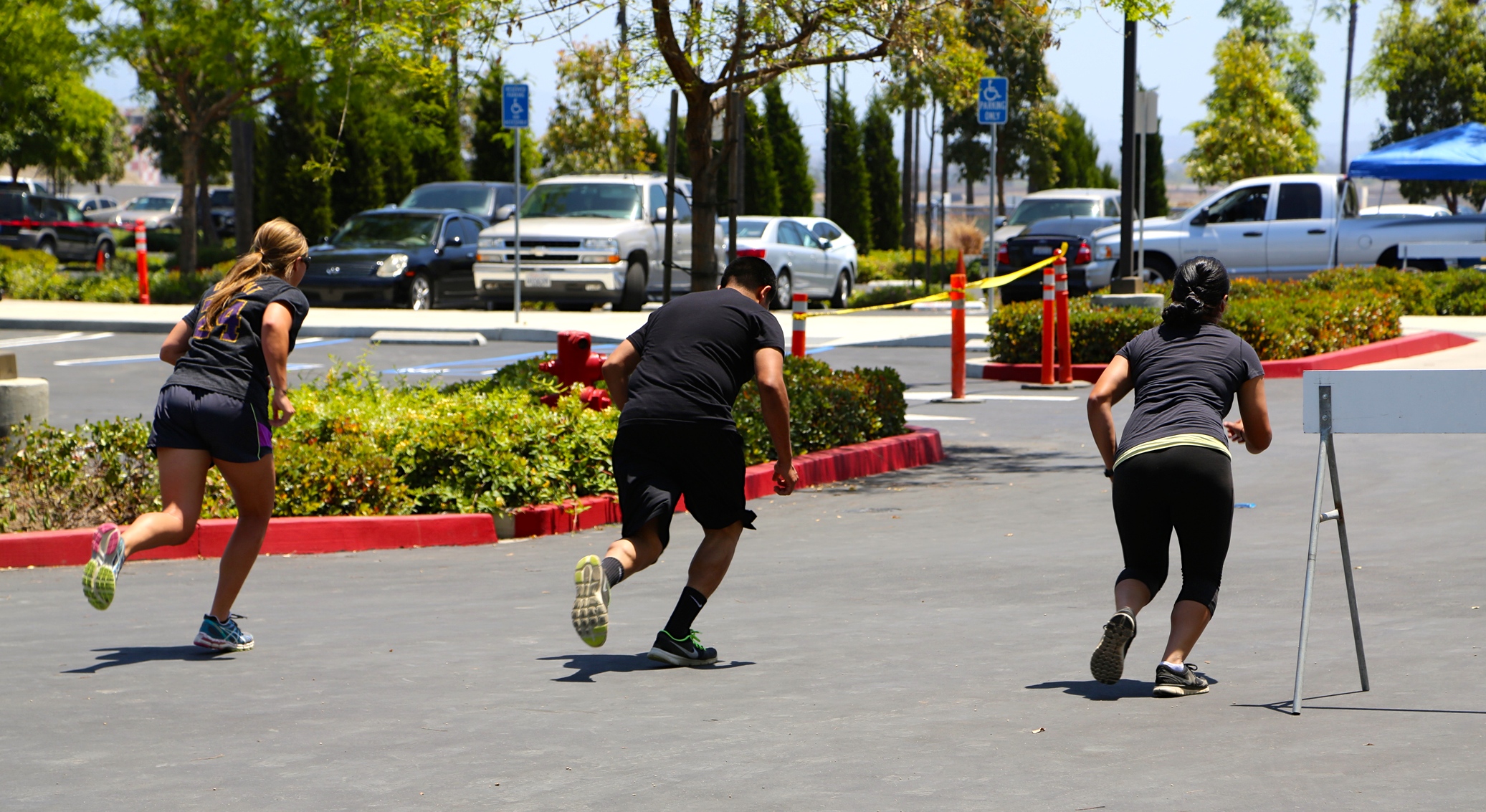In mid-January, three fresh-faced recruits are expected to graduate from the police academy and join the Garden Grove PD as rookie cops.
When (or, technically, if) they complete the mentally and physically taxing six-month program at the Orange County Sheriff’s Regional Training Academy in Tustin, graduation day will mark the culmination of a remarkable 13-month-long process that illustrates how much work, time and money goes into putting a single cop on the street.
It’s a lengthy process every law enforcement agency undertakes to fill openings for sworn officers, and a painstakingly detailed and comprehensive process that most members of the public aren’t aware of, says Lt. Ben Stauffer.
“It’s a constant grind,” he says.
The goal, of course, is to find and hire the most qualified police officers — and that doesn’t happen overnight.
This year alone, the Garden Grove PD had 12 vacancies to fill for full-time cops.
If all goes as planned, the agency could end up with a total of nine new police officers by March 2015 — which would include one “lateral” (a transfer from another agency) who is close to getting hired, Stauffer said.
Flash back to December 2013, when the Garden Grove PD had 12 vacancies.
The search to fill those positions began with an eye-popping 1,280 applications.
When all was said and done, the Garden Grove PD ended up putting five recruits through the six-month academy that began in July.
Two of those five have dropped out of the academy, leaving the Garden Grove PD with three likely graduates in January.
How did 1,280 initial applicants translate to three potential new hires?
Stauffer, whose duties as head of Professional Standards include overseeing personnel and training, sat down with Behind the Badge to go through some numbers.
The application process is open a minimum of 30 days. About two weeks after the application period ends, the Garden Grove PD notifies applicants they must be tested for physical agility.
Only 600 of the 1,280 signed up for that stage of the process, Stauffer says — and only 430 showed up for the full day of physical tests.
Then, a few weeks later, applicants had to take a 2½-hour written test for general knowledge.
This stage was followed by “orals,” in which applicants answer questions before a panel of three Garden Grove PD officials.
After all of this had happened, the Garden Grove PD had a pool of 78 possible recruits — 48 of them solid candidates and the other 30 merely competent candidates.
Of the prized 48 job candidates, 22 ended up being disqualified for a variety of reasons, withdrew or were not selected to move on to the next stage — leaving the Garden Grove PD with a pool of 26 possible hires.
Then came time-consuming background investigations, which can take up to six weeks and includes fingerprint record checks, contacting the police agencies that patrol all former addresses of the candidate to see if they ever were involved in law violations and interviews with at least 10 to 12 friends, family and co-workers who know the applicant regarding their moral character and integrity.
After this step, the Garden Grove PD finally selected five people to put through the academy.
The agency paid each recruit’s approximate $7,000 academy tuition and also paid each recruit a salary (without benefits) of $26.10 per hour.
It’s sad, Stauffer said, to see a recruit drop out of the academy — as two did in the class that started in July. But it’s better they did while in the academy rather than later, he said.
“We want everyone to succeed,” Stauffer said, “but when they fail (at the academy), we’ve got to let them go.
“If they can’t deal with the ‘fake stress’ at the academy, then how are they going to deal with someone who wants to hurt them when they are a cop on the street?”
If the Garden Grove PD’s three recruits in the July class graduate in January, each faces three months of field training before becoming a bona fide police officer, bringing the total recruiting and training process timeline to a total of 16 months.
Another academy class that began in September hopefully will yield three additional graduates in March, for a total of six new police officers for the Garden Grove PD.
The agency is hoping to pick up two more recruits in March who are paying their own way through the police academy, who with the likely “lateral” will bring the total to nine new officers.
“It’s hard getting applicants through the door, but it’s a necessary process to make sure we are hiring only the finest,” Stauffer said.
Photos of recruits being taken through physical agility test courtesy of the Garden Grove Police Department.
 Behind the Badge
Behind the Badge






